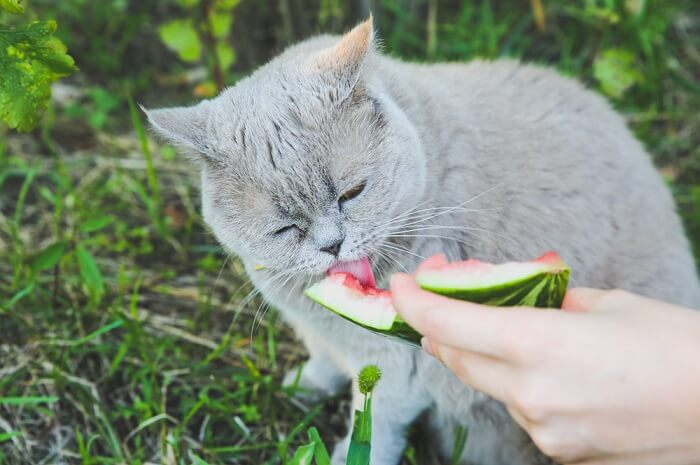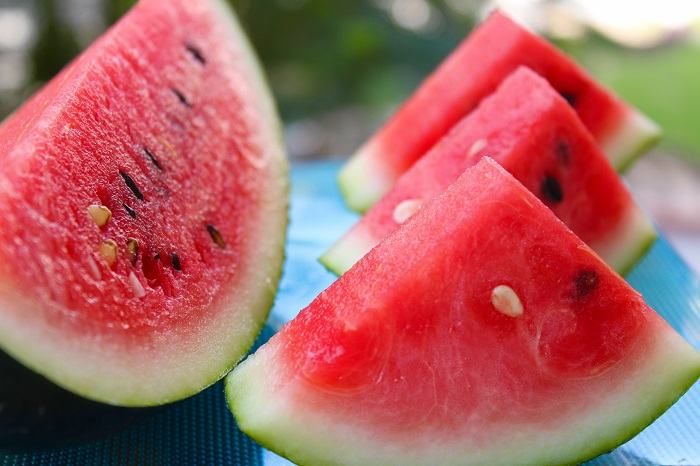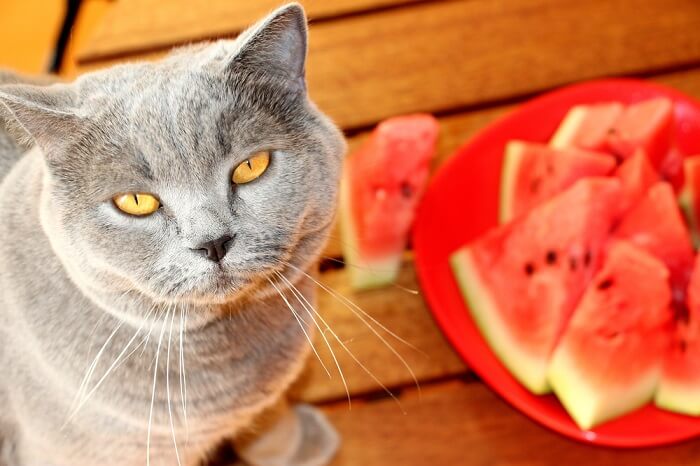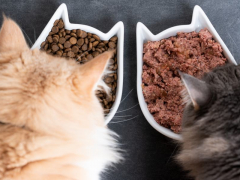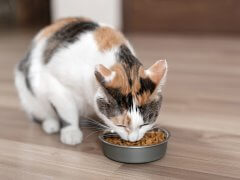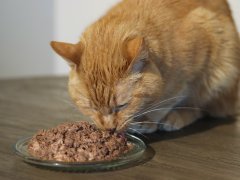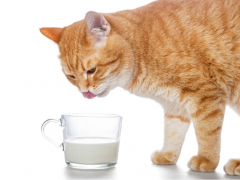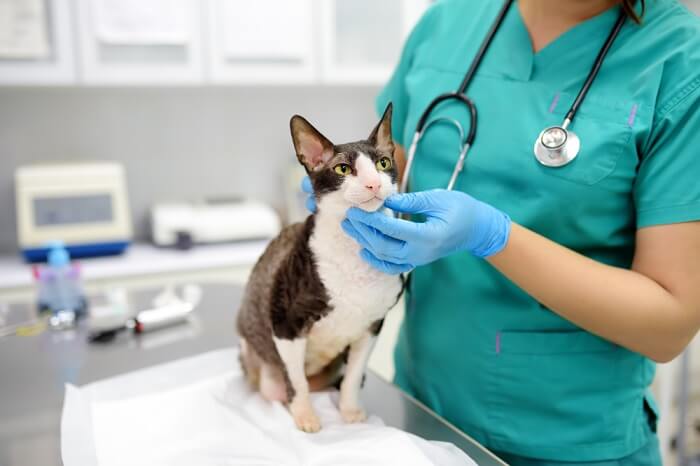Watermelon, for me, is the taste of summer. Does your cat beg for a slice of watermelon?
We’re going to look at whether cats can have watermelon, how much they can have, and whether watermelon is good for cats.
Cats can eat watermelon as an occasional treat in small amounts, but too much may potentially cause digestive upset due to its high fiber content.Quick Overview: Can Cats Eat Watermelon?
Toxic: No
Commonly Allergenic: No
Species Appropriate: No
How Often to Feed: Occasional
How Much to Feed: Supplemental
Summary of Content
Can Cats Have Watermelon?
Yes! Cats can eat watermelon! Despite being carnivores for the main part, many cats actually enjoy snacking on watermelon.
As with all foods that are not part of their usual complete and balanced diet, you should feed it in moderation. Although watermelon isn’t really high in sugar, it can contain enough to cause an upset stomach in cats. To avoid this, only small pieces of watermelon should be fed, and only occasionally.
The other thing to be aware of is the watermelon seeds. These seeds can cause a problem for two reasons. Firstly, the seeds are big enough that they can cause choking.
Secondly, if your cat chews the watermelon seeds, they release amygdalin. Whilst amygdalin isn’t a problem in itself, it is changed by the body into cyanide, a toxic chemical. However, the amount of cyanide in one or two seeds isn’t enough to cause problems for your cat. Whilst you should take them out if at all possible, if your cat eats one that falls on the floor they’re unlikely to have any ill effects. Even better, find a seedless variety.
Is Watermelon Good for Cats?
So, cats can eat watermelon, in moderation. But does watermelon have health benefits for cats? Watermelon has a high water content, and is low in calories, so it’s not full of important nutrients. However, this can be useful in itself.
Watermelon Is Good For Hydration
Cats are not very good at keeping themselves hydrated. As desert-dwellers, they get most of their water intake from their prey, and very little from water itself. They don’t have a high thirst drive, and often won’t seek out water even if they’re a little dehydrated. Watermelon is great for this reason — your cat can ‘eat’ their water!
Keeping hydrated can help to reduce the risk of kidney disease and constipation, as well as improve urine problems such as urinary crystals and cystitis.
Watermelon Contains Lycopene
Lycopene is thought to be an excellent antioxidant and free-radical scavenger, protecting the body from the effects of oxidative stress and chronic disease as well as certain cancers, especially prostate cancer.
Some studies have also suggested that lycopene can help to protect the body from herbicides and it might have anti-fungal benefits too. However, most of these studies have been undertaken in rats or humans, and there are no studies on the benefits of lycopene in cats.
Is Watermelon Bad for Cats?
Watermelon is not toxic to cats, but it is not a necessary part of their diet, and too much watermelon can cause digestive upset due to its high fiber content.
Moderation is key. Giving your cat too much watermelon can cause more problems than it solves, especially if they get diarrhea and vomiting!
The sugar content of watermelon also means it should be given with caution to diabetic cats.
Calorie-wise, your cat needs to have no more than 10% of his calories from all his treats, including watermelon. The good news is that watermelon is low in calories, so this is quite easy to do.
How Much Watermelon Can a Cat Eat?
A 9lb cat can have about 20 calories of treats each day, which is around 70g of watermelon. However, this is probably still too much for your average cat!
I would advise that pet owners wanting to share watermelon with their feline friend start off with a piece no larger than a half-inch cube. Don’t forget to remove the seeds!
If your furry friend likes the watermelon, and doesn’t have adverse effects such as an upset stomach after 24-48 hours, you can move to give them a little more next time. However, I wouldn’t feed more than an inch cube per day.
Final Thoughts
Cats can have watermelon as a healthy treat, and, whilst not a vitamin powerhouse like other fruits, it might be a good way to ensure they stay hydrated. Like all human foods, watermelon isn’t balanced and shouldn’t be fed to your cat in large amounts or as their main meal- it’s best as an occasional snack alongside cat food.
Remember to remove the seeds, though, and don’t feed the hard outer skin, which is not digestible and is a choking hazard as well as likely to cause bowel obstruction.
